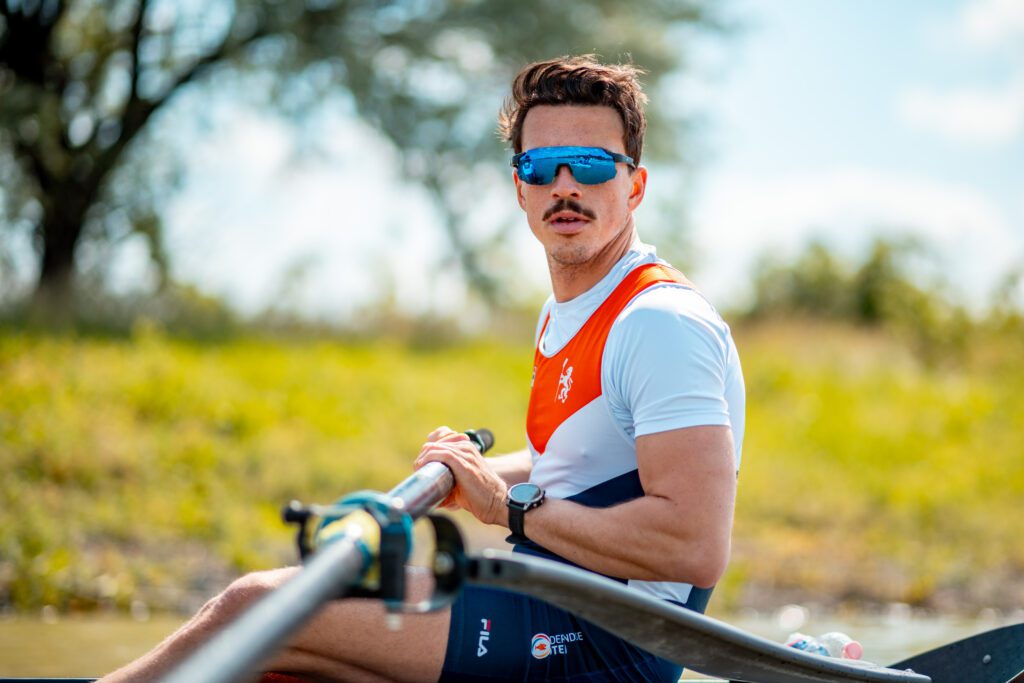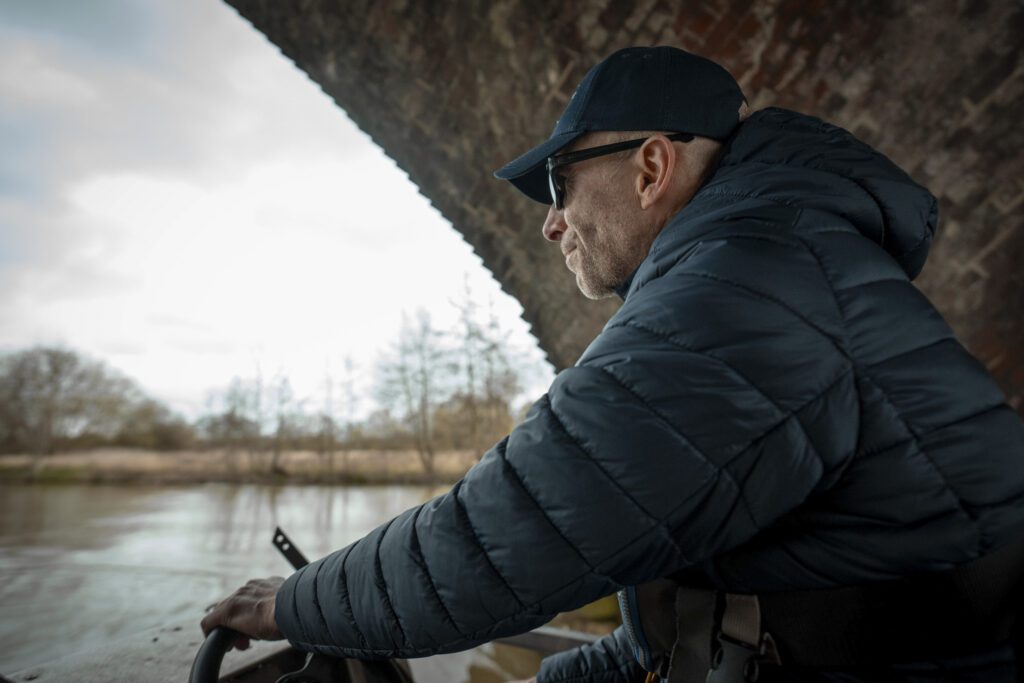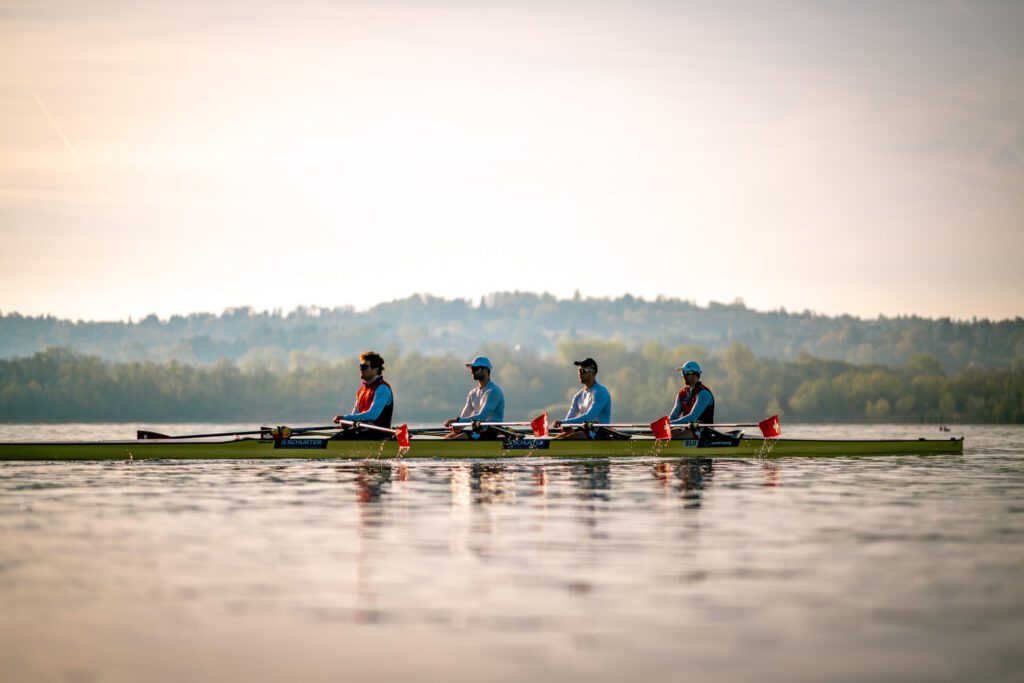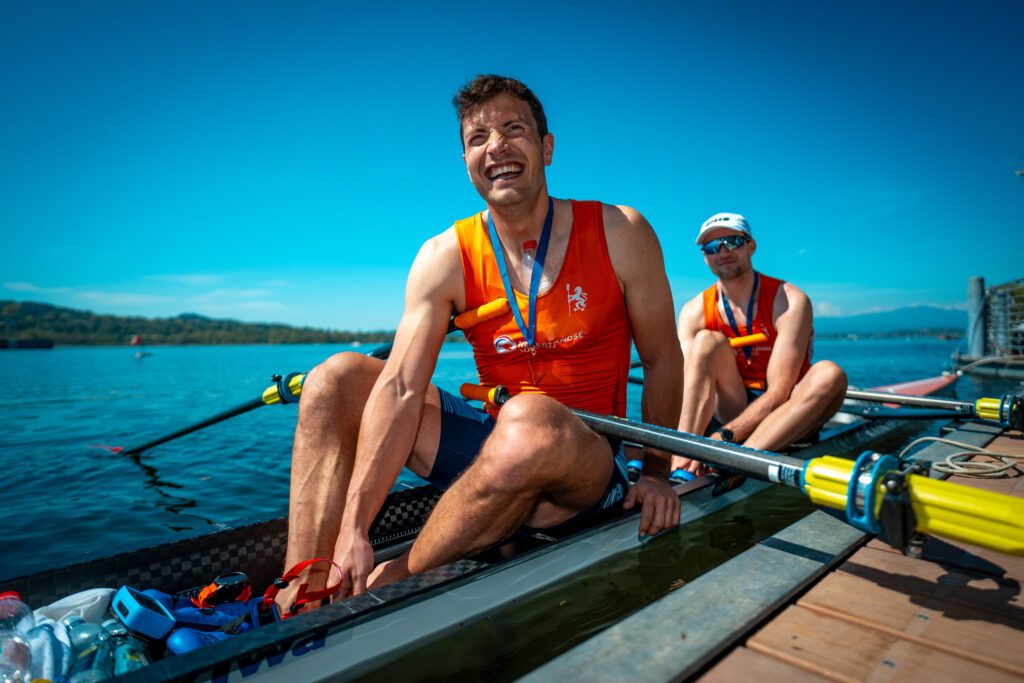Monday’s menu was a short one, featuring a wide mix of event types. The non-Olympic/Paralympic small-entry events started going (well apart from those with straight finals), along with the women’s doubles and PR1-singles, and then it was into repechage territory for the huge events where even getting into the quarter-finals was going to be difficult.
An even more scorching blue sky greeted the first athletes to race the course, and with even less breeze and more humidity than on Sunday, the thermometer just kept rising throughout the day. Athletes seem to be coping OK at the moment, though everyone grabs shade as soon as they can get off the water, and there’s plenty of use of the online streamed TV coverage since it’s the only way to keep up with what’s going on without burning up energy needed for racing.
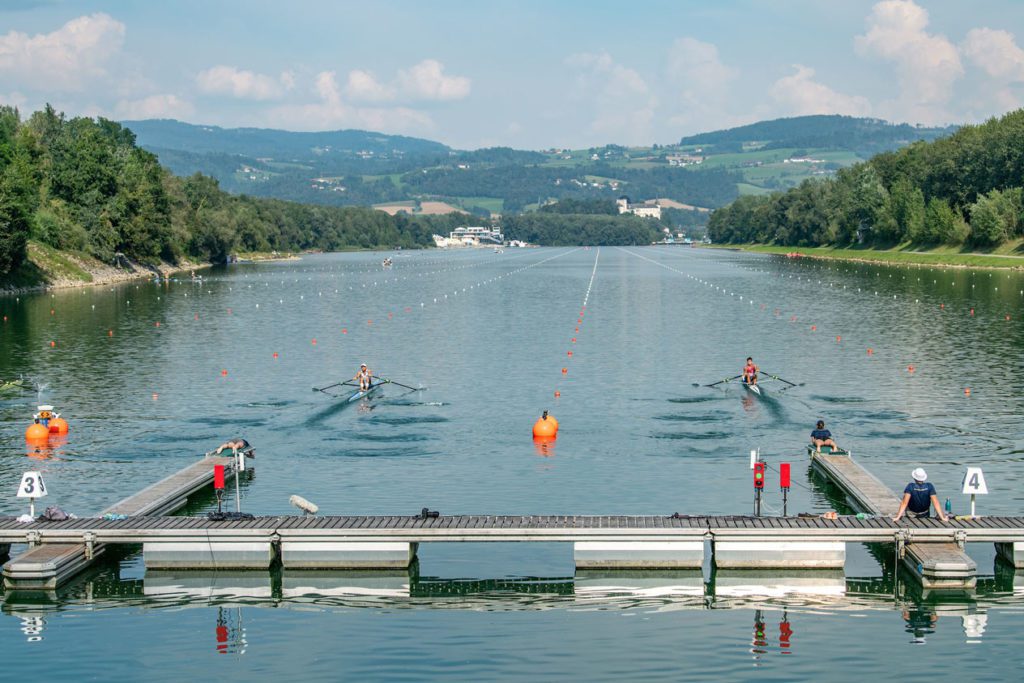
Photo
The start line // World Championships, Linz Ottensheim, Austria. Monday 26 August 2019
Credit Steve McArthur
One change on the second day of racing was an experiment run by FISA to test out piping the audio commentary to the start. This attempt to create a grandstand atmosphere for the rowers — a new idea in this sport — had to go through dozens of layers (and several months) of decision-making, and was only initially allowed for the non-Tokyo qualification races of Monday. Unfortunately those didn’t have quite the same following as the rest, so it may not be easy to tell how successful it is. The commentators did their usual crew roll-call, stating lanes, with pauses for each so that crowds could cheer their crews. The suggestion is that it will be trialled again on Tuesday — with the eights if the team managers can be persuaded — but that’s not yet confirmed.
Though the spectator areas were relatively empty (not helped by an edict that athletes and coaches were no longer allowed in the Friends & Family grandstand) the atmosphere was surprisingly good for Short Monday, one of the lowest-interest days of the regatta. Austria’s local fans turned out in support of their three crews and made plenty of noise, particularly for M1x Lukas Rei, although he was beaten by a very short nose (0.02 seconds) by Mexican Juan Carlos Cabrera, who jacked the rate up and waltzed past Reim very close to the finish line: only the winner qualified for the quarter-finals in that repechage, which was the closest race of the day.
The very first crew to drop off the medal (and Tokyo) conveyor belt had been Mexico’s women’s pair, 22 seconds behind the fourth-placed Croatian Krakics (sisters?) in the sole W2- repechage. Then it was the turn of four of the men’s pairs, including Irishmen Mark O’Donovan and Shane O’Driscoll, followed by eight LM2x and three LW2x and a bunch of the lower-ranked men’s doubles.
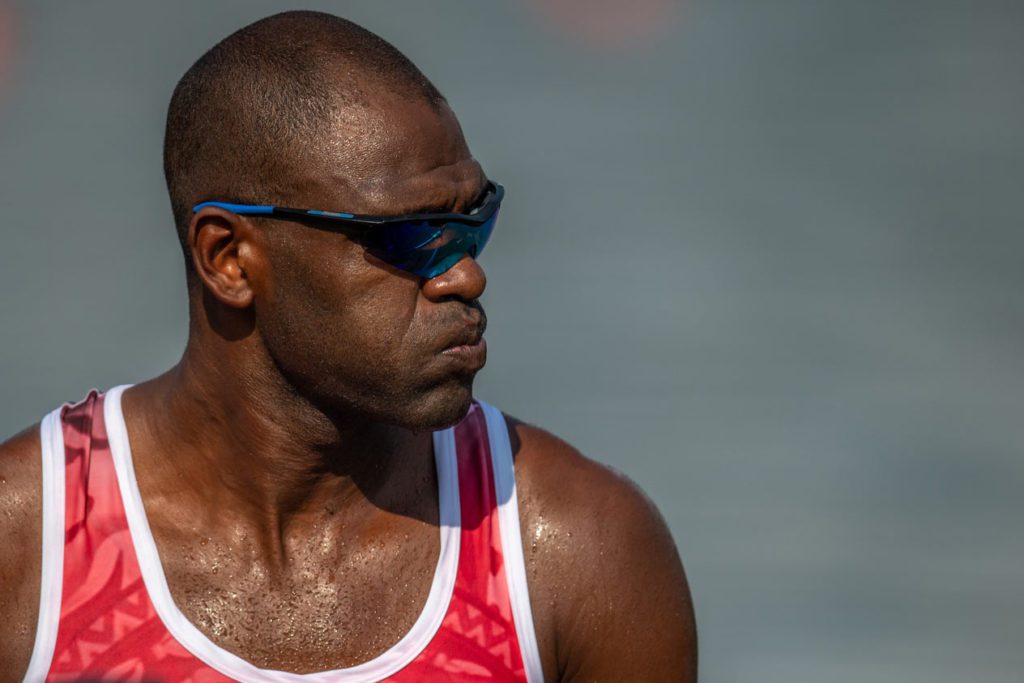
Photo Angel Fournier Rodriguez // World Championships, Linz Ottensheim, Austria, Monday 26 August 2019
The most serious casualty of the day, qualification-wise, was Angel Fournier Rodriguez. The Cuban is definitely off colour and couldn’t get past Bulgarian Kristian Vasilev, whom he would normally chew up and spit out in the blink of an eye. The only good thing for Rodriguez, one of rowing’s finest, is that he will be able to dominate the Americas Continental Qualification Regatta next April and would only want to go in the single, so should have no trouble getting to the Olympics.
The women’s singles repechages were fantastic, opened by a fast and furious sprint from three scullers which saw Aikaterini Nikolaidou (GRE) and Felice Chow (TTO) outwitting Eeva Karppinen (FIN) by the merest of margins. Two races later Veronica Toro Arana (PUR) chased Vietnamese sculler Hue Pham Thi to the line a hiccup of 0.03 seconds behind, though both qualified easily ahead of Slovakia.
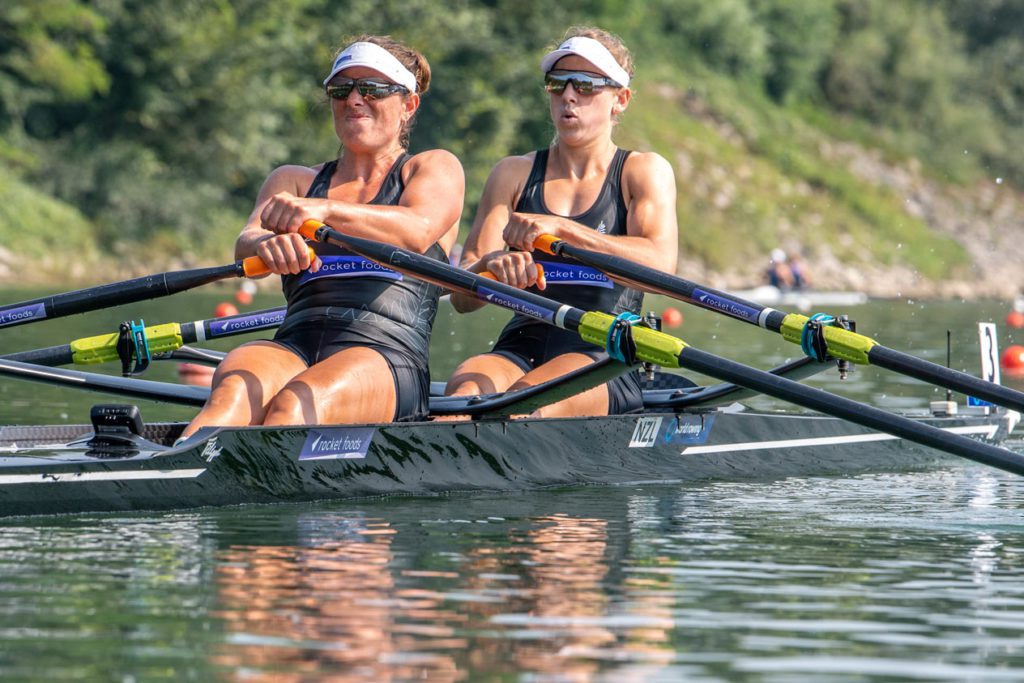
Photo Brooke Donaghue and Olivia Loe // World Championships, Linz Ottensheim, Austria, Monday 26 August 2019
In heats the queens of PR1-sculling took to the water, the expected trio of Moran Samuel (ISR), Birgit Skarstein (NOR) and Nathalie Benoit (FRA) winning comfortably to start the morning. It’s likely that we haven’t seen anything like the best of the women’s doubles, in which all but one of the four heats had margins of less than a length between the sole qualifier and their rivals. The big-gap race was headed by Kiwis Brooke Donaghue and Olivia Loe, but come the semi-finals it’s much less likely that they will be able to get away quickly and a riotous contest is looking on the cards later in the week.
